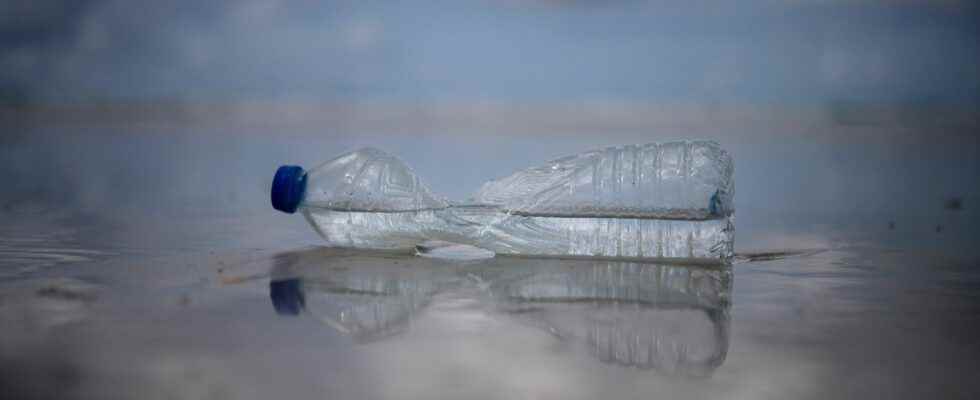France wants to catch up on plastic recycling. For this, the Ministry of Ecological Transition has announced a major consultation with manufacturers and associations around the implementation of a deposit system on plastic bottles, which takes place this Monday, January 30.
In the absence of common regulations, in Europe the recycling rates of the plastic waste produced are very disparate: they vary from 10 to 56% from one country to another, according to 2020 data from the European statistics institute Eurostat. All countries in the Union experienced a drop in their score that year, due to the application of a new method of calculation by the institute, which is based on a more rigorous transmission of data. In 2020, the average of EU countries for which Eurostat was able to collect data (18 out of 27 member countries) thus amounted to only 37.7% of recycled plastic waste.
France at the bottom of the ranking
One of the worst performers on the continent, France is well below this average, with 21% of plastic packaging recycled. This concerns the packaging used for the protection, handling, delivery and presentation of the goods. At the very bottom of the ranking, just after France, Malta tops out at 11%. A figure that is consistent with its overall recycling rate, the lowest in the European Union.
The French difficulty can largely be attributed to a poor waste collection rate. Only 60% of the tons of plastic packaging used by the French and companies are collected in the yellow bins provided for recycling, in homes or in the workplace. The establishment of a deposit system for bottles, currently being discussed within the framework of the French consultation, could, according to its supporters, facilitate this collection, by monetizing the return of plastic bottles on deposit, via automatons which would give a deposit of a few cents for any empty bottle brought back.
Already studied in 2020, the measure had been withdrawn from the Agec law under pressure from communities. These derive income from the recycling of PET plastic collected from yellow bins (it sells for between 60 and 700 euros per tonne). They have also invested significant amounts in recent years in very expensive sorting machines.
Some associations, like the association Amorce, still oppose the implementation of this system, which would require in particular an investment by the State in automats for recovering bottles. They point to the fact that plastic bottles are not the only problem, compared to plastic packaging in general. For the opponents, the deposit also has the disadvantage of devaluing the gesture by monetizing it, and of creating a surplus to be paid initially which could weigh on certain households.
In Europe, the deposit is already proving its worth
In Europe, however, the system seems to be proving its worth. At first glance, the podium of the best plastic recyclers on the continent may also seem surprising: Slovakia and Lithuania, whose recycling rates did not exceed 16% and 20% respectively in 2004, now recycle more than half (56%) of their packaging.
In these two countries, it was the introduction of a deposit system for plastic packaging, and in particular bottles, that made it possible to achieve such a high score. In Lithuania in particular, nearly 2,700 “deconsignment” machines criss-cross the territory. A system that required an initial investment of 30 million euros from the government. A similar system exists in Germany, and it has increased the recycling score to 46%.
In France, a decision should be taken by June on the establishment of a possible deposit system. In parallel with this reflection for better collection, France has undertaken to reduce the number of single-use plastic bottles by 50% by 2030. And even to reach the end of the marketing of single-use plastic packaging by 2040, according to the law of February 20, 2020 on the circular economy. The deposit of plastic bottles could become mandatory by 2029 throughout the European Union, if the draft revision of the Green Deal for Europe proposed by the Commission in November 2022 is adopted.
